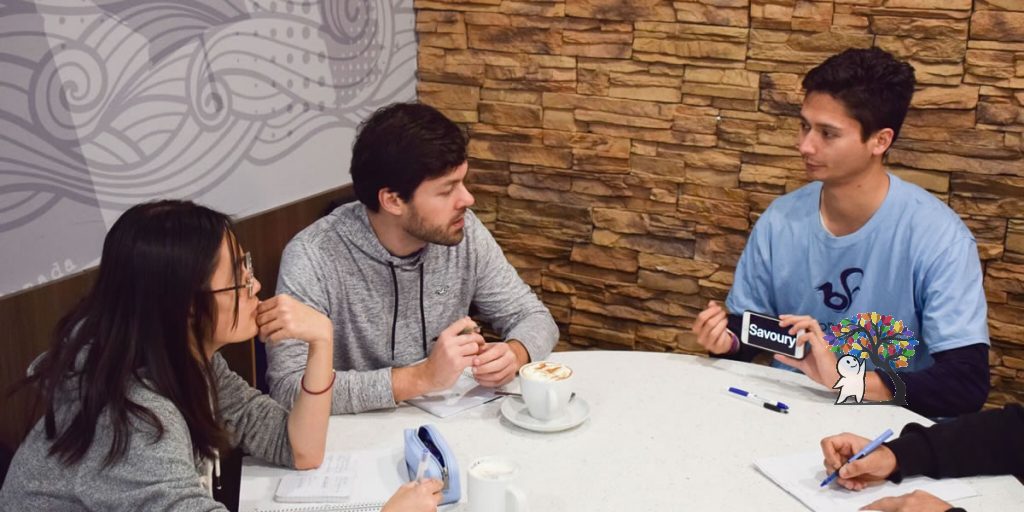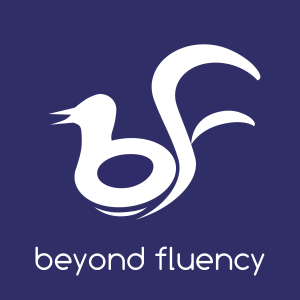Meet Lee Haber, President of Beyond Fluency [Interview]

Lee Haber is president and business director at Beyond Fluency in Vancouver, Canada. Beyond Fluency is an English language learning service that uses real life, scenario-based, and interactive approaches for intermediate language learners to learn English faster and speak like a native. Sessions involve learning vocabulary and expressions used by natives in everyday speech while cooking, shopping, and more. As an online platform, Psych2Go understands that even though we mainly communicate in English, some of our followers have first languages other than English and have studied or currently are studying other languages. We at Psych2Go were fortunate enough to talk to Lee to learn more about himself, the unique qualities of Beyond Fluency, and language learning!
 Hi Lee! Please tell us a little bit about yourself. How would you describe yourself in three words?
Hi Lee! Please tell us a little bit about yourself. How would you describe yourself in three words?
I aspire to be honest, thoughtful and compassionate. I don’t always succeed all the time at being those, but I would say those are my essential qualities.
What is your educational and/or work background?
I have a Bachelor’s Degree in Civil Engineering and a Masters in Urban Planning
What is Beyond Fluency and its mission?
Beyond Fluency is a language learning platform. Our mission is to help people speak a new language fluently and confidently like a native speaker of that language. Currently, we are focused on teaching people English.
What about Beyond Fluency resonates with you?
Foreign languages have always fascinated me. I was lucky to have learned French at a young age and I think that it helped me think more broadly and in different ways than if I had just learned English. I then tried learning additional languages in university but found most lessons and schools were a waste of time and money. Then I saw a TED talk by Tim Ferriss who showed tricks on how to effectively learn how to do new things one them being learning foreign languages. I started implementing his methods and found I could become proficient fairly quickly. First, it was German, then Mandarin, then Portuguese and now Spanish. One thing I discovered though is that I would hit a certain level where I could do basic things and say basic things, but I didn’t feel fluent and I couldn’t understand a lot. That’s where I believe Beyond Fluency comes in; we teach people how to speak like a native speaker. We teach a lot of slang, how locals speak and what locals do. We help students get over the ‘Intermediate Hump’
How does it differ from other language learning businesses and channels?
There are three main ways you can learn a language these days: using online software, taking language classes or hiring a private tutor. Like I said earlier, I think online software is great when one is starting from scratch but it can only take you so far. Full-time language classes I’ve heard are effective, but most programs are fairly expensive and most don’t focus on language used in everyday life. I’ve tried weekly language classes and have found them completely ineffective. Private tutors can be good, but may not be the most cost-effective option. The lessons Beyond Fluency offers serve a different purpose than these other options and I believe are more cost-effective. A typical lesson costs $15-20 for 1.5 hours and you are in a small group where you can ask questions, get feedback and learn from other group members.
Who is Beyond Fluency for?
Currently, we only do English lessons and we only serve students who have attained an early intermediate level or better.
What does a typical session look like?
 In a typical lesson, we take a small group of 3-5 students and we meet in a real-world location. We want the lesson to be a safe, fun space so I always encourage the students to ask questions and make mistakes. Depending on the type of lesson, we may meet in a cafe, restaurant, grocery store or somewhere in the neighbourhood and then teach the subject in as realistic, fun and engaging way as possible. For example, our Dining Out lesson takes place in a restaurant. We all order food and I would teach the students expressions related to eating, drinking, tasting, judging the restaurant, etc.
In a typical lesson, we take a small group of 3-5 students and we meet in a real-world location. We want the lesson to be a safe, fun space so I always encourage the students to ask questions and make mistakes. Depending on the type of lesson, we may meet in a cafe, restaurant, grocery store or somewhere in the neighbourhood and then teach the subject in as realistic, fun and engaging way as possible. For example, our Dining Out lesson takes place in a restaurant. We all order food and I would teach the students expressions related to eating, drinking, tasting, judging the restaurant, etc.
Are there any ways that psychology connects with this service? Such as learning methods to improve language skills or interacting with native speakers to quell fears?
The fun and safe environment is key as it’s very difficult to learn when you are stressed or in survival mode. One of the things our students have told us that they like is that learning in the actual context helps them remember things better. Practicing in the real world also seems to boost confidence in using the language. We also try to teach new expressions and vocabulary by stimulating the senses as much as possible. For example, if I’m teaching the word ‘Patio’ during a lesson, we will walk to a patio, I will show the word ‘Patio’ on my phone and I will get the students to say the word.
What changes in a client do you usually see as they progress through the program?
We only started having memberships a month ago, so we don’t have much data on how much students improve when they do our lessons regularly over an extended period of time. However, what I can say is I notice my regular students making the same mistakes less often. At some point, we will do a more detailed look at the progress students are making. What matters to me at this early stage is if the students are learning new things in the lesson and if they enjoy the lesson.
Do you have any advice for our readers who are learning and trying to improve their language skills?
As someone who knows how to speak languages to varying degrees, I would say it’s easily possible if you are willing to put a little bit of practice every day. I start off with Duolingo as it’s got a good structure and teaches you how to form sentences without smacking you over the head with grammar rules. Then as you get better that’s when you would want to do lessons like our so you can get the slang, practice speaking and get good feedback. Hopefully, we’ll be doing lessons in addition to English soon.

A big thanks to Lee for answering our questions! It was great to learn more about you and your involvement with Beyond Fluency. It’s interesting to learn more about the strategies Beyond Fluency employs in learning English for intermediate speakers in a “slump.” Keep up the good work and wish you all the best going forward!
If you are interested in learning more about Beyond Fluency, check out their website: https://www.beyondfluency.ca/
Beyond Fluency’s Facebook: https://www.facebook.com/beyondfluencyvancouver




Responses